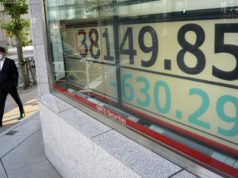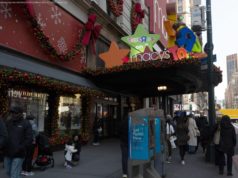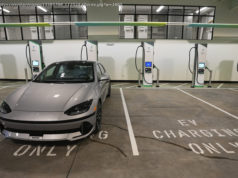Payments PayPal adds credit card PayPal is turning to its old nemesis, plastic, to help it expand beyond the digital realm. The San Jose online payments venture is introducing a credit card that offers customers 2 percent cash back on purchases – one of the industry…
PayPal is turning to its old nemesis, plastic, to help it expand beyond the digital realm.
The San Jose online payments venture is introducing a credit card that offers customers 2 percent cash back on purchases — one of the industry’s highest rebate rates — with no annual fee. The rewards will appear in users’ online wallets and can be spent immediately on additional PayPal purchases or transferred to a bank.
The move is part of CEO Dan Schulman’s effort to transform PayPal from a payments button on websites into a versatile financial tool for everyday use, even in brick-and-mortar stores. He has forged 24 deals in 18 months with technology and financial companies including Apple, Visa and JPMorgan Chase & Co., looking to make PayPal ubiquitous in the lives of its 210 million customers. The company already tested the card with some of them.
“Not only are they using us to shop outside of PayPal in the physical world but they’ re also shopping more on PayPal with this card, ” said Darrell Esch, the chief commercial officer for global credit. Some customers began checking the balance in their digital wallets more often, leading to additional shopping online.
By the end of June, before the card’s full rollout, transactions per PayPal account rose 10 percent to 32.3 over the trailing 12 months, according to the company.
Among credit card enticements, cash back remains king. Almost 70 percent of consumers say their favorite rewards card offers such rebates, according to a June survey by card processor Total System Services.
PayPal’s entry may challenge Citigroup, which offers the popular Double Cash card with 1 percent back when consumers make a purchase and another 1 percent back when they pay the balance.
Home Depot has agreed to pay the U. S. government $5.7 million to settle charges that it sold recalled washing machines, fire extinguishers and other faulty products.
The U. S. Consumer Product Safety Commission says the products were sold by the home-improvement retailer between 2012 and 2016.
In agreeing to the settlement, Home Depot did not admit guilt.
Home Depot also agreed to continue a compliance program designed to make sure recalled products are not sold in its stores.
Home Depot did not immediately respond to a request for comment.
Uber’s leasing arm has agreed to pay $250,000 to settle allegations that it overcharged for tolls for hundreds of Massachusetts drivers who leased vehicles from the San Francisco ride-hailing company’s subsidiary.
State Attorney General Maura Healey announced Wednesday that the settlement with Xchange Leasing LLC includes $210,000 for 336 drivers, and $40,000 for her office’s local consumer aid fund.
The amount each driver was reimbursed was linked to the amount they were overbilled, but averaged about $600.
Xchange Leasing primarily leases to potential Uber drivers who don’ t own a vehicle.
The state’s investigation found that Xchange Leasing at times double- or triple-charged for each legitimate toll.
Uber acknowledged mistakes and said the company has taken steps to improve.
Toyota is pushing deeper into the ride-sharing business.
Toyota Tsusho, the automaker’s trading arm, will invest an undisclosed amount in Grab, Southeast Asia’s leading ride-hailing operator. Toyota Motor said it will work with Grab to provide services in the region, a year after the carmaker bought a small stake in Uber.
Carmakers are working with and competing against technology companies to figure out how to make money as automation, electrification and on-demand transportation threaten to reshape the current model of individual car ownership. Honda has also invested in Grab, its first in a ride-sharing company, in a partnership for expanding motorcycle-hailing operations in Southeast Asia.
Toyota’s investment in Grab will be through the $55 million Next Technology Fund set up in April by Toyota Tsusho for opportunities in innovative technologies, products and services.
Grab wants to raise $2.5 billion from the latest round of funding, including $2 billion it already announced from Didi Chuxing and SoftBank. That will put Grab’s valuation over $6 billion, a person familiar with the matter said in July.
Toyota will record and analyze driving patterns in 100 Grab cars in Singapore, and offer recommendations on what connected services it can provide Grab drivers.
Chronicle News Services






